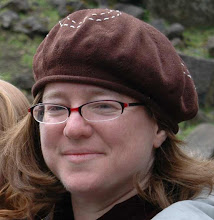 I am an unabashed fan of the Ramchal--Rabbi Moshe Chaim Luzzatto (1707-1746). He is one of those authors whose works I return to again and again. Yet, I often feel like there are two Ramchals. There is the tzaddik who spawned the modern mussar (ethics) movement who work is taught in orthodox yeshivot around the world. Then, there is the sometimes heretical, messianic mystic studied by academics. Can these be the same person?
I am an unabashed fan of the Ramchal--Rabbi Moshe Chaim Luzzatto (1707-1746). He is one of those authors whose works I return to again and again. Yet, I often feel like there are two Ramchals. There is the tzaddik who spawned the modern mussar (ethics) movement who work is taught in orthodox yeshivot around the world. Then, there is the sometimes heretical, messianic mystic studied by academics. Can these be the same person?
Recent publications of some of the Ramchal's mystical masterpieces (including 138 Openings of Wisdom and Secrets of the Future Temple: Mishkney Elyon) by Rabbi Avraham Greenbaum have begun to close this gap, by showing the importance of the Ramchal as a mystical thinker as well as ethical philosopher. In my own scholarship, I've tried to understand why the Ramchal became such a crucial figure for mainstream Judaism by looking to how he reveals the logic of mysticism and how he answers the fundamental theological questions of his era. Rabbi Moshe Chaim Luzzatto (1707-1746) was born in Padua (Italy) and died in Acre, near Tiberius (Israel). In between, he settled in Amsterdam where he wrote many of his most famous works, including Mesillat Yesharim (The Path of the Just) and possibly Derech haShem (The Way of G-d). These works answered a basic need in the Sephardic community, particularly the questions raised by the large numbers of conversos arriving in Amsterdam due to late waves of the Inquisition. These are questions that still plague us today. Do our acts matter for salvation? How can we gain knowledge of God’s plan? What is the relationship between the physical realm and the spiritual? What is the meaning and purpose of life? If God is in charge of the universe, how can I have free will?
Rabbi Moshe Chaim Luzzatto (1707-1746) was born in Padua (Italy) and died in Acre, near Tiberius (Israel). In between, he settled in Amsterdam where he wrote many of his most famous works, including Mesillat Yesharim (The Path of the Just) and possibly Derech haShem (The Way of G-d). These works answered a basic need in the Sephardic community, particularly the questions raised by the large numbers of conversos arriving in Amsterdam due to late waves of the Inquisition. These are questions that still plague us today. Do our acts matter for salvation? How can we gain knowledge of God’s plan? What is the relationship between the physical realm and the spiritual? What is the meaning and purpose of life? If God is in charge of the universe, how can I have free will?
The Ramchal’s writings were (and are) powerful because they addressed the great questions and concerns of his day; moreover, his answers revealed that the major “threats” to Jewish practice were not as threatening as people might have thought. Thus it should not surprise us, that works like Mesillat Yesharim and Derech haShem were almost immediately accepted as central formulations of Jewish belief, despite the fact that the Ramchal authored other more controversial messianic manuscripts.

Ramchal Synagogue in Acre © Yourway
The edition has many strengths. First, the translation is lively and very readable. Second, the notes are excellent and insightful, but not intrusive. Third, the introduction is succinct and still helpful. Fourth, the book contains both the "dialogue" and "thematic" versions of this classic work.
Resources on the Ramchal
- Internet Version of 138 Openings of Wisdom and Secrets of the Future Temple: Mishkney Elyon; Also available in book form.
- Feldheim Editions of Ramchal's Works.
- Ramchal in Spanish: El Camino de Dios; Mesilat Yesharim
- Ramchal class by Rabbi Feldman
- Ramhal Instiutute
- Biography: Yirmeyahu Bindman's Rabbi Moshe Chaim Luzzatto: His Life and Works
- Rabbi Kenneth Brodkin's (Kesser Israel) Class on Derech haShem



0 comments:
Post a Comment